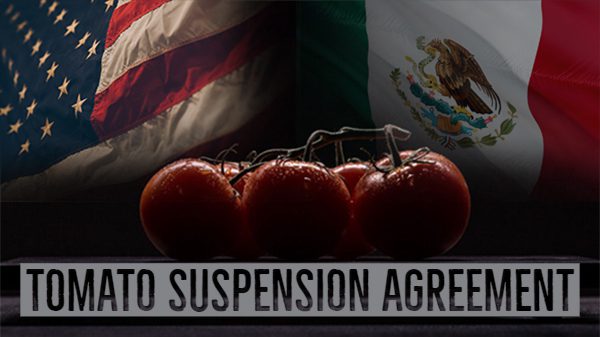Before the comment period ended Sept. 9, the U.S.’s largest retailer told the Department of Commerce in a letter that it’s concerned the proposed increase in border inspections for tomatoes will cause a bottleneck at ports of entry and deprive consumers of product.
“We encourage the Department to consider a model like other inspection programs for imported products that base inspections on risk and need,” wrote Walmart BB #:143789 senior director of federal government affairs James R. “Tres” Bailey.
“Given the high quality and low failure rate of Mexican tomatoes, such intensive inspections do not seem proportionate to the risk. In addition, we would suggest the Department implement a ‘trusted trader’ program along the lines of the US. Food and Drug Administration’s Voluntary Qualified Importer Program (VQIP) which allows qualified importers to receive expedited review and import entry of human and animal foods.”
U.S. and Mexican officials negotiated a new suspension agreement Aug. 20, with a comment period until Sept. 9. In the agreement, Mexican growers allowed border quality inspections to increase from less than 10 percent to as high as 90 percent, a system many see as unworkable.
The percent of inspections is even up for debate, as the The Fresh Produce Association of the Americas BB #:144354 says the provision in the deal would require inspections of up to 92 percent of all tomato lots entering the U.S. from Mexico.
But the DOC puts the number at 66 percent.
Either way, Walmart says it’s too high, and it will cost its customers.
In the letter, Walmart stresses that it buys tomatoes from all over the world, including from 21 states. But because of consumer demand, it also buys tomatoes from Canada and Mexico, and the proposed tomato agreement should subject Mexican tomatoes “to an overly burdensome inspection regime.”
“Policies like the inspection requirement in the Draft Agreement come at a cost that outweighs the benefits for American consumers,” Bailey wrote.
The sides are expected to approve the deal Sept. 19, and it’s possible the DOC could make changes based on comments.



